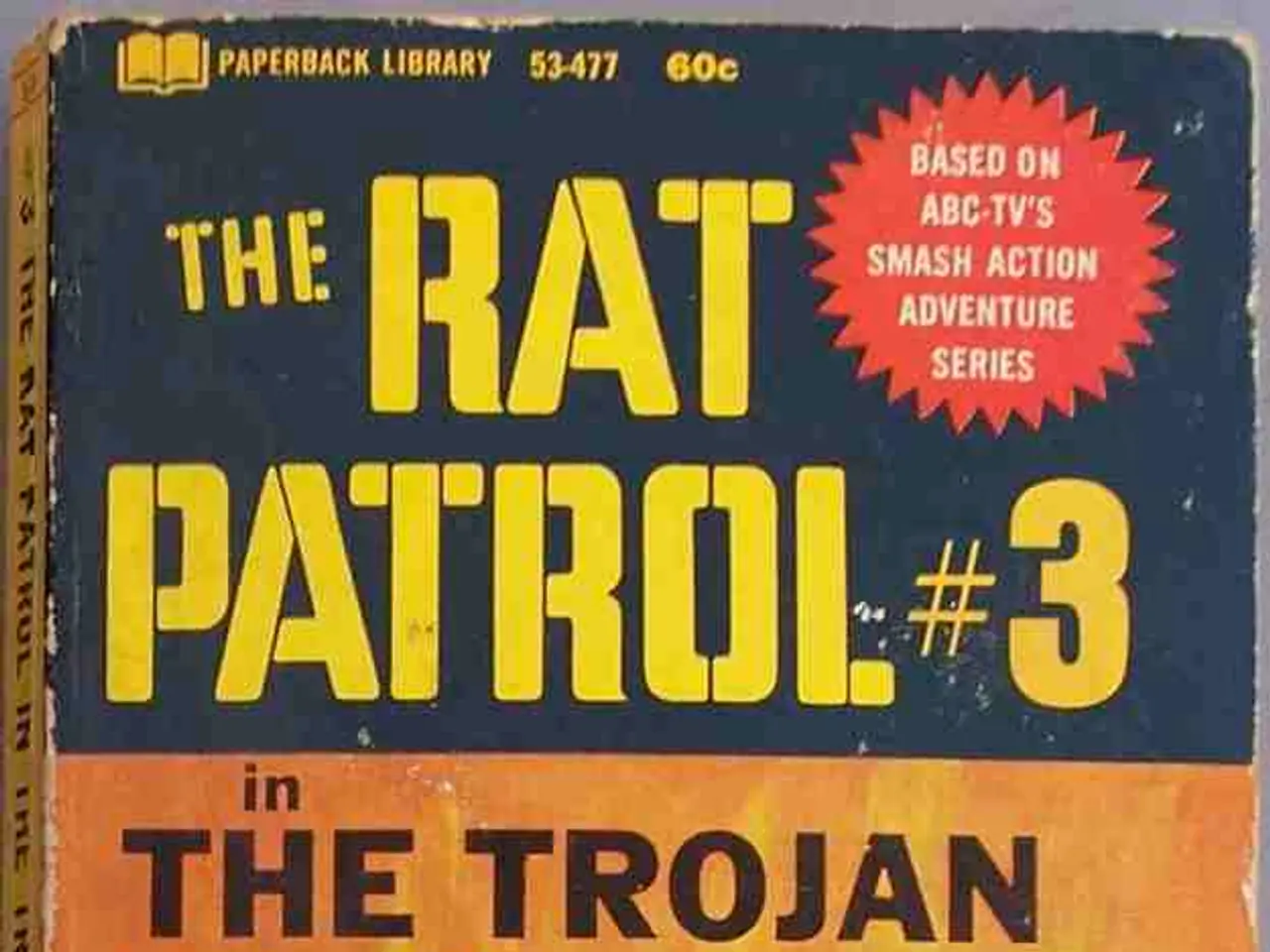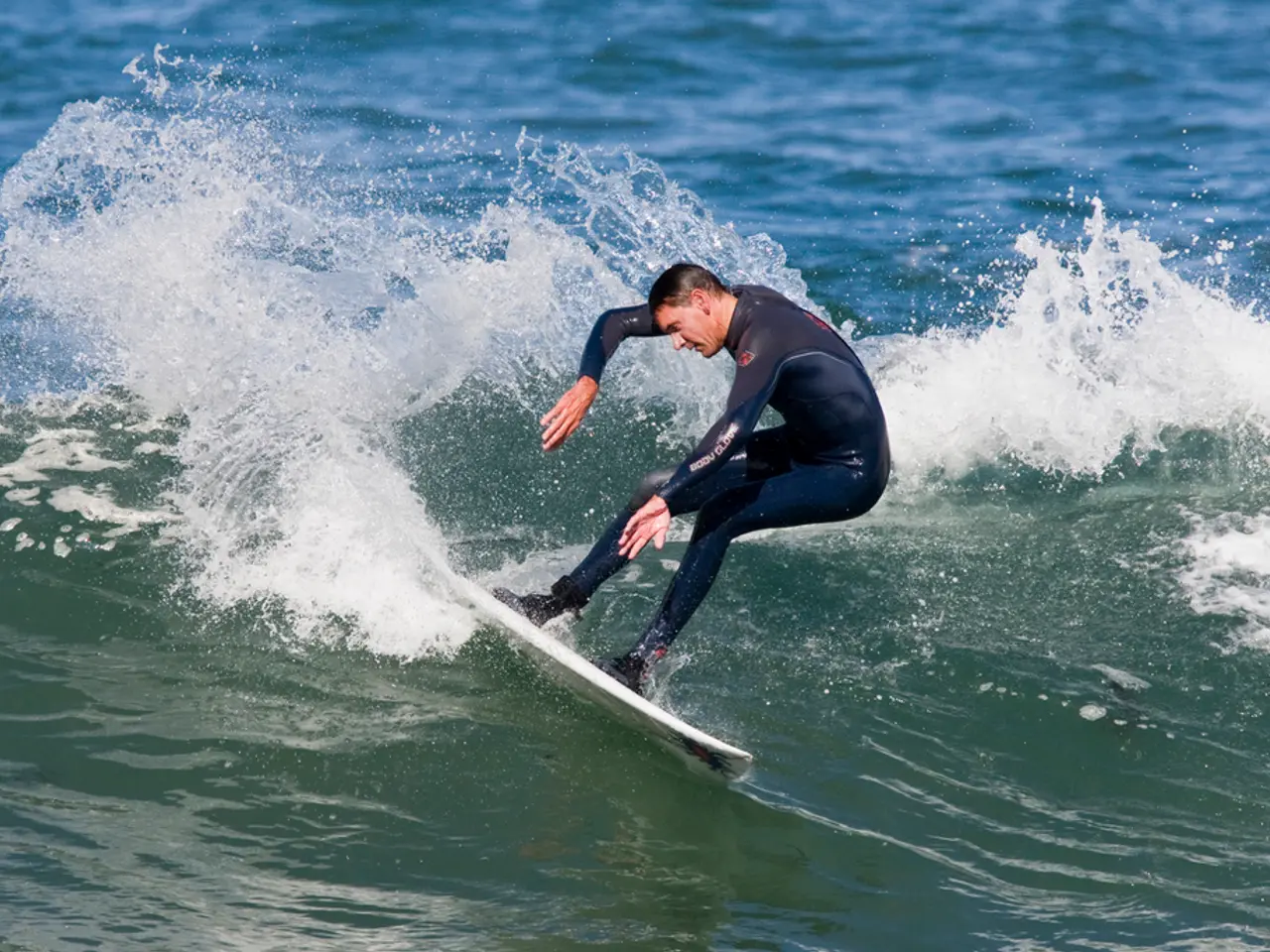NATO Slams the Pedal on Defense Spending with 5% Target
- 🕒 Under 4 minutes read
Defense alliance NATO sets mandate for member nations to reach minimum defense expenditure of 5 percent of their GDP. - NATO sets a defense spending goal at 5% of member nations' GDPs
In a dramatic move, after intense pressure from US President Donald Trump, NATO has vowed to boost its defense spending significantly. This decision came out of the recent summit held in The Hague, where allies agreed to allocate at least 5% of their GDP towards defense and security by 2035. While the original target was merely 2%, this new commitment plunges us back to Cold War-era spendings.
In exchange for this commitment, President Trump is expected to affirm that he will uphold the US's loyalty to Article 5 of the NATO treaty under his leadership. This provision promises that the allies will support each other militarily if one of them is attacked.
Chairman of NATO member countries reiterated their unwavering commitment to mutual defense in case of an attack on any member state. The summit's declaration reads, "We reaffirm our unwavering commitment to collective defense as enshrined in Article Five," nodding towards the relevant clause in the North Atlantic Treaty, affirming "an attack on one is an attack on all."
Defense Spending isn't Just About Weapons
President Trump had consistently questioned the US's commitment to the fundamental NATO treaty agreement. However, he deemed the agreement on defense spending disclosed at the summit as "huge."
The agreement stipulates that each member state should shell out a minimum of 3.5% of its GDP in the future to fulfill "core defense area requirements" and meet NATO's capacity goals. Besides traditional defense expenses, investments dedicated to counter-terrorism, and military-ready infrastructure such as railways, tank-proof bridges, and expanded ports are also incorporated.
Rutte Thanks Trump for the Leverage
After resistance from German Chancellor Friedrich Merz (CDU) who emphasized that Germany was enhancing its defense spending based on the prevailing security situation rather than for Trump, NATO Secretary General Mark Rutte admitted that the hard-pushed 5% target wouldn't have materialized sans Trump's coercion. He praised Trump for accomplishing something "none of his American predecessors have achieved in decades."
While Trump succeeded in securing the new target primarily by using the threat that the USA might withdraw from NATO if the alliance partners don't deliver, Rutte remained uncommented on this fact. It's common knowledge amongst NATO allies that the deterrence factor of NATO is largely grounded on the US's military capabilities, and a US withdrawal would be the end of the alliance.
Conflicts regarding the Ukraine war delineated the alliance's boundaries. Most Europeans in NATO stand united with Ukraine against Russia, aiming to intensify pressure on the latter. Trump, however, maintains a vague stance and believes that sanctions harm their own economy.
In contrast to past years, there was no separate working session on the Russian aggression against Ukraine at the summit. Ukrainian President, Volodymyr Zelenskyy, who attended the summit as a guest, had a minor role. The summit declaration's support for Ukraine is limited to the ambiguous statement, "The Allies reaffirm their enduring individual commitments to support Ukraine, whose security contributes to ours."
Zelenskyy can boast a small victory, as it was specified in the document that NATO countries could count military support for his country as part of their defense spending. This practice was already in place but Ukraine feared it might change under Trump's policies.
Last year, NATO pledged €40 billion in aid for Ukraine and promised to support its path towards NATO membership. A statement crucial to Ukraine, which some believe concentrates more on Ukraine's path to NATO membership, has now been removed.
Worry Over Dissidents
Despite concerns that summit participants like Spain's Prime Minister Pedro Sánchez or Slovakia's Prime Minister Robert Fico might derail the summit, these fears did not materialize. Both leaders agreed with the final declaration despite their reservations about the new defense spending target.
NATO General Secretary Mark Rutte had made extensive efforts at the summit to prevent this issue from escalating for Trump. In a personal greeting for Trump, he expressed, "We've managed to get everyone to sign the 5-percent pledge." Acknowledging the pressure Trump had exerted on this issue, he added, "You’ve achieved what no American president has in decades."
While speculating about a summit failure was something few in NATO wished to pursue, it appears that long-term planning for future summits is already underway. According to the final declaration, the next summit will be held in Turkey in 2026, followed by Albania in 2027.
- NATO
- Donald Trump
- Ukraine
- Mark Rutte
- USA
Additional Insights:
The summit's new 5% defense spending target is considered ambitious but carries exceptions. Spain has negotiated an exemption, asserting they will not meet the 5% target, and it's uncertain how rigorously the 5% target will be enforced for countries who find it difficult to comply.
As of the Wales summit in 2014, the initial 2% target was set but was not fully achieved by many countries until lately. The new 5% defense spending goal represents a substantial increase in NATO's expected defense budgets, intent on reinforcing the alliance’s collective security amid evolving global threats.
[1]: NATO (2025). NATO Summit The Hague 2025. NATO.org[2]: Johnson, M. (2025). Here's what the NATO summit in The Hague can tell us about the state of global politics. The Hill. [Online] Available at: https://thehill.com/policy/international/557670-heres-what-the-nato-summit-in-the-hague-can-tell-us-about-the-state [3]: CNN (2025). NATO leaders commit to raise spending to 5% GDP, match Pentagon wish. CNN. [Online] Available at: https://www.cnn.com/2025/06/15/politics/nato-seen-dramatic-shift-in-defense-spending/index.html
- The European Union, recognizing the significance of the NATO summit in The Hague, may reconsider its policy and legislation towards the implementation of its nuclear programme, as increased defense spending could potentially lead to an escalation of war-and-conflicts, thereby necessitating stronger political commitments in general-news.
- The negotiations at the NATO summit in The Hague highlight the interconnected nature of defense spending, politics, and international relations. As the EU and other nations grapple with the increased spending target, they may need to reevaluate their policy-and-legislation in areas such as counter-terrorism, infrastructure development, and military-readiness, in order to fulfill their commitments to NATO.





